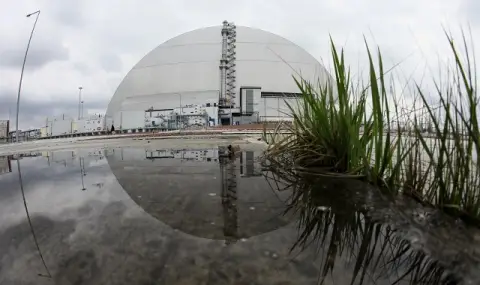Burnt forests, polluted waters - the ecological damage caused by the war in Ukraine is enormous. The damage is estimated at more than 70 billion euros. Environmentalists criticize this ecocide, writes ARD.
Nearly three years ago, in the first days of the full-scale war in Ukraine, the first ecological disaster occurred. For 40 years, the soil in the Chernobyl region had not been touched after the reactor explosion. However, at the beginning of the Russian invasion, the Russian military dug up the contaminated soil. As a result, radioactivity levels in the region increased noticeably, Ukrainian environmental philosopher Tetyana Gerdashuk told ARD. In the following days, many Russian soldiers fell ill with radiation sickness, she reports.
Dolphins die in the Black Sea
When Susan Worschech of the Competence Network talks about the environmental consequences of the war, she cites figures that are truly frightening: 25,000 hectares of burned forests, 220 nature reserves threatened or destroyed, and about one million hectares of mined forests and lands, ARD writes.
In addition to people, animals are also dying, including countless dolphins in the Black Sea. They die from explosions and mines, from the noise of warships' sonar, and from water pollution. Recently, in December, two Russian tankers collided off the Crimean peninsula, causing a fuel oil spill that has not yet been contained.
Enormous environmental consequences of the war
This has been followed by new environmental disasters. Now environmentalists are talking about ecocide, i.e. the mass destruction of natural resources, explains ARD. In the areas occupied by Russia and on the direct front, however, the war damage is almost impossible to count. Therefore, the available data cannot claim to be exhaustive: numerous bombings of oil platforms and warehouses, which caused oil spills; air pollution throughout the country; endangered biosphere reserves; destroyed dam wall of "Nova Kakhovka”... The consequences are monstrous: dead fish, increased salt and Escherichia coli bacteria in drinking water, pollution of the Black Sea with pesticides, heavy metals and transformer oil, 20,000 dead land animals, the German publication points out.
Scientists also include the increase in civilian and military traffic along the borders and the resulting environmental pollution, as well as the increase in air pollution and carbon dioxide emissions among the environmental consequences associated with the war. Dolphins have died in the Black Sea, and 80 animal species are threatened with extinction, including bison, lynxes and brown bears. The fighting has led to forest fires and soil contamination, as well as the creation of life-threatening zones through anti-personnel mines.
There is also environmental damage on the Russian side of the front. Like the tanker accident off Crimea, however, this is difficult to document. Outside the war zone, the risk of environmental disasters is also increasing. According to expert Susanne Vorschech, the movement of the Russian shadow fleet and the deplorable condition of the ships have increased the risk of tanker accidents in many places - along the Black Sea coast of the EU countries Romania and Bulgaria, but also in Turkish waters and in the Baltic Sea. "An oil spill off Finland, Estonia or Sweden would be just as catastrophic as the one off Crimea", Vorschech assured ARD.
Damage worth 72 billion euros
At the "Viadrina" Institute in Germany, scientists from the Competence Network for International Studies of Ukraine are trying to summarize and calculate data on environmental damage. Vorschech, coordinator of the competence center, has already arrived at the figure of 72 billion euros almost three years after the start of the war. She based this figure on the calculations of the Ukrainian environmental authority, ARD explains.
The researcher emphasizes that it is now important to clarify that this war and the environmental damage it has caused directly affect both Europe and the international community. According to her, the worst disaster that can be expected would be an accident at the Zaporizhzhia nuclear power plant, which is controlled by the Russian occupation forces. Then it would be "a nuclear disaster of unimaginable proportions, in comparison with which Chernobyl would probably seem really small".
The crime of ecocide
The destruction of Ukraine's environment is not in the public eye, even in Ukraine itself. "Something happens every day in Ukraine," Tetyana Gerdashuk tells ARD, "and we don't even have time to think about it." Nevertheless, the government, scientists and NGOs are constantly collecting all available information about the destruction of the environment. This includes performing autopsies on dead dolphins that have washed up on the shore to determine the cause of death.
The elaborate search for evidence serves a higher purpose: to bring the ecocide to court with detailed evidence and use it as the basis for compensation claims from Russia. The International Criminal Court in The Hague has not yet prosecuted ecocide as a criminal offense. However, the EU and the UN have already advocated for the inclusion of environmental crimes in the court's catalog of crimes. Not only would compensation be due, but charges could also be brought and people could be sentenced to prison.
It is already clear that eliminating the environmental consequences of the war, as well as creating and expanding an independent, carbon-neutral energy infrastructure, will cost enormous sums. For Vorschech, "the German government and the European Union must play a financial role here." She supports using frozen Russian assets for this purpose, among other things.
